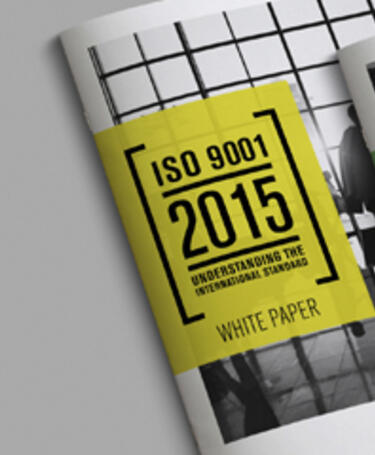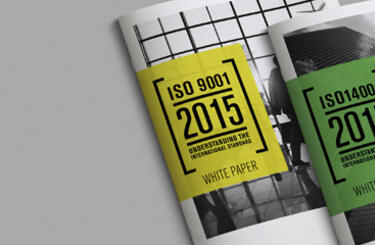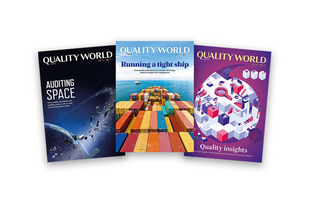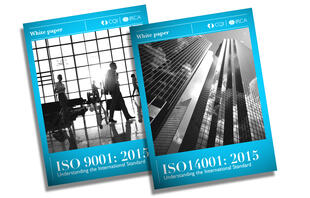
The philosophy of ISO 9001:2015

Antonis Louloudis, CQP MCQI, head of SWISS APPROVAL/TUV Rheinland-North Hellas Branch, Greece, tells Andrew Holt that effective ISO 9001:2015 transition is about embracing the standard’s philosophy.
Antonis Louloudis, CQP MCQI, is head of SWISS APPROVAL TECHNISCHE BEWERTUNG SA/TUV Rheinland representative office at the North Hellas Branch in Thessaloniki, Greece, a leading certification and notification body for quality system certification and industrial inspections.
As part of a series of articles on the challenges and benefits of ISO 9001:2015 transition, Andrew Holt asked Louloudis about addressing the challenges.
What are the critical challenges you face in auditing organisations management systems against the requirements of ISO 9001:2015?
I think there are new challenges in the new standard for consultants and auditors. One of the most important require documented information instead of paper. Organisations are used to paper, but now they have to prove to the auditor that they conform to the new standard without using all this paper work and demonstrate their compliance to using computer systems. This is an important new challenge.
There is another issue about differentiation between external and internal parties. We need a gap analysis between the old and new standard to help organisations understand the new requirement. We need to see the context of the system.
Why is this such an issue?
This is difficult because Greek companies do not own their systems. They only use the system and follow the rules guided by consultants. They do not own them because they do not take the time in order to work with the systems. They do not understand that this is a useful tool for marketing, for organisation, for all of the operation of companies.
What organisations need to understand is the requirement philosophy is different: you have to own the system. You have to answer the questions of the context of the organisation. Also, some of them do not know the difference between risk and opportunity and their meanings.
How can auditors best prepare to audit top management commitment?
Auditors have to study again and again the 19011 auditing procedures (Guidelines for auditing management systems). I think this standard has to be revised as well. Auditors should study the context of the organisation before the audit.
In Greece we also have another issue. We have many laws for the same thing. And sometimes you need to be a lawyer to understand. It is complicated.
What do auditors need to do to address these requirements?
Companies have to understand the context and then decide the scope of the certification. Most decide the scope before. So I tell them: go to the Annex of the standard and read what is meant by context and then we will decide what is the scope. The new standard requires study.
Are business leaders doing enough to understand what is required of them as a result of ISO 9001:2015?
Not here in Greece. Training will help. But training costs money. And many companies do not want to spend money or invest in training.
What is the key auditing difference between ISO 9001:2008 and ISO 9001:2015?
I think it is an improvement of the standard. It is a standard for grown-up people. It is not just rules, it is a philosophy.
Annex SL has been described as the “big opportunity” for ISO standard-based management systems – how do you think organisations, business leaders and auditors can realise this opportunity?
First, we have to understand the opportunity of change. The standard helps in order to understand and develop the changes.
What have you seen in Greece when it comes to transition to the standard?
The first companies certified in Greece against the new standard are not the biggest, they are quite small. Also the companies of the public-state are not very interested. This is because they have no money for training. On the other hand, the hotel sector, a big part of the Greek economy, want to be certified against the new standard.
Read more about how ISO 9001:2015 can boost quality improvement
Member only

This article is free to access for a limited time only. Only CQI and IRCA members receive access to all content.
Get the latest ISO reports and resources

Our many reports and resources will help you achieve a smooth transition to ISO 9001:2015 and ISO 14001:2015.